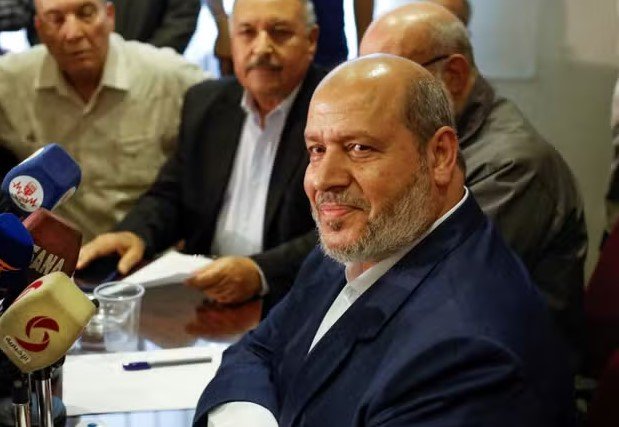Hamas top negotiator Khalil al-Hayya landed in Egypt on Sunday to lead indirect talks with Israel aimed at a Gaza ceasefire and hostage swap. These discussions, set for Monday in Sharm el-Sheikh, mark his first public move since surviving an Israeli strike in Doha last month that killed his son and others.
Background on the Negotiations
Recent events have pushed these talks forward after months of stalled efforts. The war in Gaza, now nearing its second year, started with the October 7, 2023, attacks that killed over 1,200 people in Israel and led to the capture of about 250 hostages. Israel responded with military actions that have caused more than 42,000 deaths in Gaza, according to local health officials.
Al-Hayya, a senior Hamas figure, survived an assassination attempt in Qatar, which heightened tensions but also spurred renewed diplomatic pushes. Sources indicate that both sides have shown interest in a U.S.-backed plan, though details remain under wraps.
Hamas officials stated the delegation aims to focus on ending the fighting, pulling back Israeli troops, and exchanging prisoners. This comes amid growing international pressure for peace as the conflict spreads to other areas like Lebanon.

Key Details of the Proposed Deal
The talks center on a 20-point ceasefire proposal that includes phased hostage releases and troop withdrawals. Mediators from Egypt, Qatar, and the U.S. have worked to bridge gaps between the two sides.
One major sticking point is the release of Palestinian prisoners in exchange for Israeli hostages. Reports suggest Hamas wants high-profile figures freed, while Israel seeks the return of all remaining captives, estimated at around 100.
- Hostage releases could start within days if talks succeed.
- Israeli forces might withdraw from key Gaza areas like the Rafah border.
- Aid delivery to Gaza would increase to address the humanitarian crisis.
A table outlining the proposed phases:
| Phase | Duration | Key Actions |
|---|---|---|
| 1 | 40 days | Release of 35-40 hostages; temporary ceasefire; prisoner swap |
| 2 | 30 days | Partial troop withdrawal; more aid and reconstruction starts |
| 3 | Ongoing | Full ceasefire; negotiations for long-term peace |
These elements draw from recent mediator briefings and aim to build trust step by step.
Experts note that past deals fell apart over enforcement issues, but current involvement from U.S. leaders adds weight.
Role of International Players
U.S. President Donald Trump has taken a hands-on approach, sending envoys like Steve Witkoff and Jared Kushner to the region. Their goal is to finalize terms quickly, with Trump urging fast action to end the war.
Egypt hosts the talks in Sharm el-Sheikh, a neutral spot that has seen similar negotiations before. Egyptian officials called this a real chance for lasting peace, stressing the need to halt bombings during discussions.
Israel’s Prime Minister Benjamin Netanyahu expressed hope for quick hostage returns, with his team heading to Egypt on Monday. On the Hamas side, al-Hayya appeared on TV to affirm the group’s commitment, despite personal losses.
Other nations, including Qatar, continue to mediate, though the Doha strike strained relations.
Challenges and Potential Roadblocks
While optimism runs high, several hurdles remain. Israel insists on security guarantees, fearing Hamas could regroup. Hamas demands a full end to the occupation and rebuilding support for Gaza.
Recent escalations, such as strikes in Lebanon and ongoing Gaza operations, could derail progress. U.S. Secretary of State Marco Rubio called for an immediate halt to bombings to allow safe hostage releases.
Public sentiment in Israel pushes for a deal, with families of hostages protesting for action. In Gaza, civilians endure shortages, making any truce vital for survival.
Analysts predict that if talks fail, the conflict might intensify, drawing in more regional powers.
Outlook for Gaza and Beyond
These negotiations could reshape the Middle East if successful. A ceasefire might open doors for broader peace talks, including with other groups like Hezbollah.
Humanitarian groups warn that without a deal, Gaza’s crisis will worsen, with over 1.9 million displaced. Rebuilding efforts, backed by international aid, would follow any agreement.
As the second anniversary of the war approaches, all eyes are on Sharm el-Sheikh for signs of breakthrough.
What do you think about these developments? Share your thoughts in the comments and spread the word to keep the conversation going.
